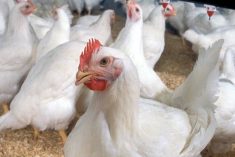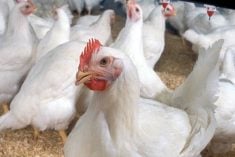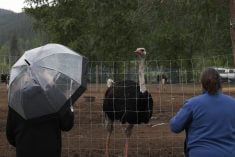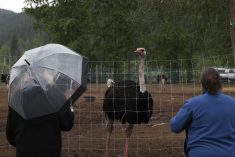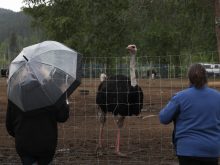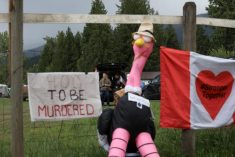Paris/Amsterdam | Reuters—Bird flu vaccines for laying hens are effective in practice, the Dutch government said on Tuesday, while confirming plans to vaccinate poultry against the virus.
Highly pathogenic avian influenza, commonly called bird flu, has killed or caused the culling of hundreds of millions of poultry globally in recent years, most of them laying hens, which sent egg prices rocketing in some countries.
Research in the laboratory of Wageningen Bioveterinary Research (WBVR) early last year had already shown that two vaccines against bird flu, produced by France’s Ceva Animal Health and Germany’s Boehringer Ingelheim, were effective against the virus but there had been no experiment on a farm.
Read Also

Federal budget draws mixed reaction from Canadian agriculture groups
The 2025 federal budget took a step forward in recognizing agriculture’s importance but failed to address pressing challenges like labour disruptions, interswitching and precision technology, say Canadian farm groups.
“In September 2023, 1,800 day-old chicks were vaccinated against bird flu. The results show that the two tested vaccines are effective against infection with the virus eight weeks after vaccination,” the Dutch agriculture ministry said in a statement.
“The fact that the vaccines work in practice is a very important step towards the large-scale vaccination of poultry against the bird flu virus,” it said.
Bird flu is raising mounting concerns as the disease is increasingly spreading to mammals, with the first-ever outbreaks detected in dairy cows in the United States raising concerns about it spreading to humans through the nation’s milk supply.
The tests were carried out at two laying farms by Wageningen University & Research (WUR), Royal GD (Animal Health Service) and the Faculty of Veterinary Medicine of Utrecht University, the ministry said.
More transmission trials will be conducted over the next year and a half to assess the vaccines’ effectiveness during the entire laying period, the Dutch ministry said.
Australia last week reported its first case of avian influenza in a child who had become infected in India, while a different highly infectious strain was found on an egg farm.
“The government intends to make large-scale vaccination possible responsibly, taking into account animal and public health, as well as animal welfare. Also to minimize any unfavorable effects of the vaccination on trade. That is why a step-by-step approach was chosen,” it said.



